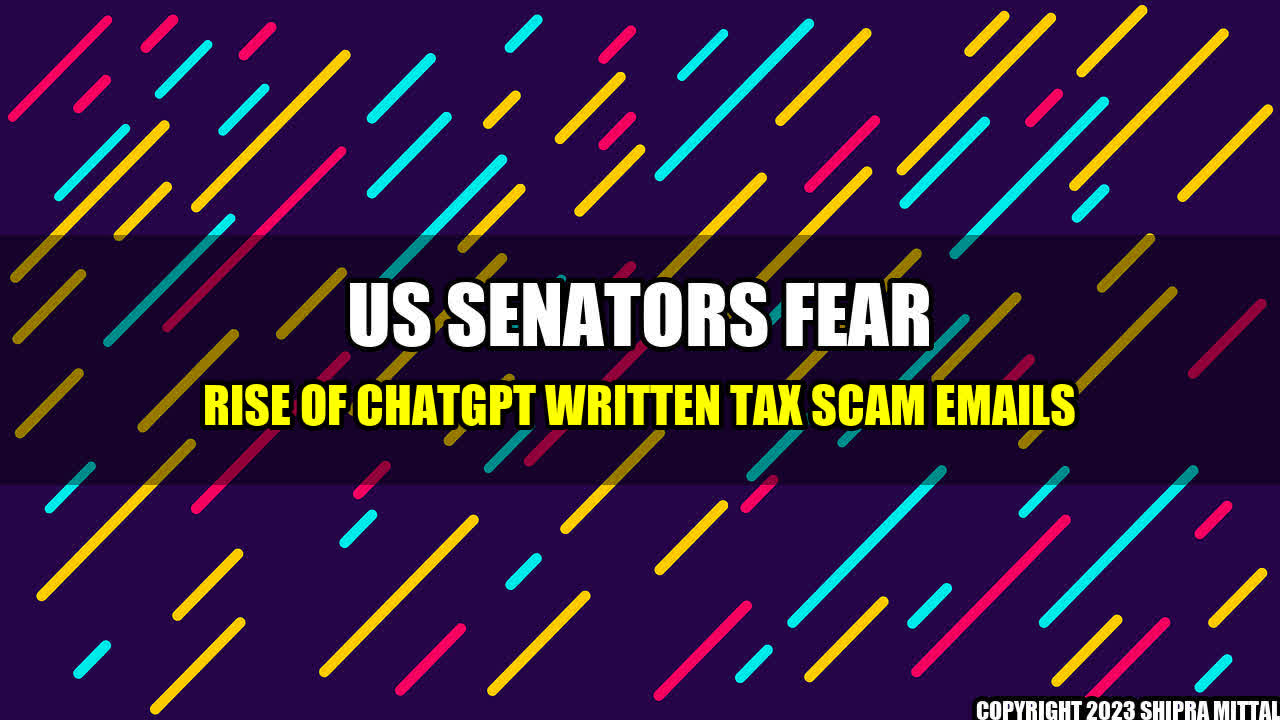Have you ever received an email claiming to be from the IRS, asking you to provide your personal information or pay a fake tax bill? These types of phishing scams are nothing new, but now there's a new twist: ChatGPT written tax scam emails.
ChatGPT is an AI language model that can generate realistic text, including emails. Unfortunately, cybercriminals are taking advantage of this technology to craft convincing phishing messages that can fool even the most tech-savvy users. And US senators are worried.
According to a recent report by The Register, several senators have sent a letter to the US Federal Trade Commission (FTC) urging them to take action against this new threat. The letter states that "the use of advanced technology by cybercriminals to deceive consumers is a growing trend that must be addressed."
To understand why senators are so concerned, let's take a look at some real-life examples.
Example 1: Fake IRS Phishing Email
Last year, a phishing campaign targeted taxpayers with fake IRS emails that were generated by ChatGPT. The emails contained a link to a fake IRS website that looked almost identical to the real one. Users were prompted to enter their personal and financial information, which was then stolen by the scammers.
IRS Security Awareness Tips for Taxpayers
Example 2: Fake Bank Phishing Email
In another case, scammers used ChatGPT to create a convincing email that appeared to be from a bank. The email claimed that the user's account had been compromised and asked them to click on a link to verify their identity. The link led to a fake bank website that was designed to steal the user's login credentials.
Bank of America Online Banking Security FAQs
Example 3: Fake Amazon Phishing Email
This phishing email used ChatGPT to create a message that appeared to be from Amazon, informing the user that their account had been locked due to suspicious activity. The email contained a link to a fake Amazon website that asked for the user's login credentials and credit card information.
Amazon Help & Customer Service
These examples show just how easy it is for cybercriminals to use ChatGPT to create realistic phishing emails that can deceive even the most vigilant users. But what can be done about it?
The FTC has already taken some steps to combat phishing scams, such as launching a campaign to educate consumers about how to spot and avoid them. However, some experts argue that more needs to be done, such as legislation to regulate the use of AI in cybercrime.
Conclusion:
- Cybercriminals are using ChatGPT to create convincing tax scam emails that can deceive even tech-savvy users.
- US senators are concerned about this trend and are urging the FTC to take action.
- Real-life examples show how ChatGPT is being used to target taxpayers, bank customers, and online shoppers.

Akash Mittal Tech Article
Share on Twitter Share on LinkedIn